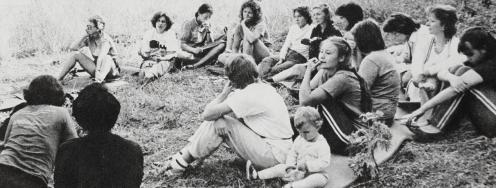Banning the Bomb Blast
Eisenhower wanted it; Kennedy almost got it; Clinton negotiated it; and now Obama can deliver it. It is the longest-sought, hardest-fought for goal in the history of nuclear arms control: a global ban on nuclear weapons tests.
Fifty years ago, on August 5, 1963, the United States, the Soviet Union and the United Kingdom signed the Limited Test Ban Treaty, banning tests in the atmosphere, underwater and in outer space. This landmark treaty is the main reason that no nation tests above ground to this day. It took a while, but it became the global norm, whether a state had signed the treaty or not. Even India and Pakistan’s tests in 1998 and North Korea’s more recent tests were conducted underground, limiting their environmental damage.
But Kennedy had wanted more. A strong national security Democrat, he supported the strong national security Republican President Dwight D. Eisenhower when he pursued a complete ban on all tests in the 1950s. Still, Kennedy said that the limited ban was “safer by far for the United States than an unlimited arms race.” The Senate approved the treaty quickly on September 23 by an 80-19 margin; Kennedy signed it on October 7, 1963. He hoped it would only be a few years before he could secure the full ban. It was not to be.
Thirty-three years later, the United Nations finally adopted the Comprehensive Test Ban Treaty negotiated under the leadership of Bill Clinton. But in a fit of partisan politics, the Senate failed to approve the treaty by a vote of 51-48.
President Obama promised in his June speech in Berlin to pursue its ratification. Indeed the case is stronger than ever. All of the technical concerns that led some senators to oppose the treaty in 1999 have been resolved. There is widespread scientific agreement that a global ban can be effectively verified, cheaters can be caught, and that the US does not need any more explosive tests to keep its nuclear weapons safe, secure and effective.
A global ban has two key national security benefits:
- It will curtail a dangerous nuclear arms race in South Asia. India and Pakistan are both building more nuclear weapons. Testing would allow them to build weapons with larger yields and smaller size. China might follow South Asian tests with its own. A global ban would be an important restraint on this deadly spiral.
- A ban preserves the US advantage. With 1032 tests, the United States has conducted more tests than the rest of the world combined. We don’t need to do any more. We have a strong interest in preventing any other state from developing more deadly – and potentially more usable -- nuclear weapons. A test ban could build confidence that the US and Russia could more quickly reduce their massive arsenals with less fear that others would race to build up.
But to get Senate ratification, President Obama will have to do more. As Senator Jeanne Shaheen (D.-NH) said on April 11 of this year: “There’s a lot of work to be done before taking up CTBT. But that just means we should start now to chart a path forward for its eventual consideration.”
Ploughshares Fund supports the efforts of a coalition of non-governmental groups and experts to build political support for this key national security measure and to create the political will in the current administration to launch a multi-year effort to win Senate approval. A good source of information on these efforts is the Project for the Comprehensive Test Ban Treaty, run by the Arms Control Association.
On September 6, I will travel to New York City to meet the new executive director of the Comprehensive Test Ban Treaty Organization, Lassina Zerbo, and join him in a series of meetings with key diplomats supporting the treaty, organized by the Global Security Institute. It was a pleasure visiting the CTBTO headquarters in Vienna last July and an honor to have the organization post a video of my interview and the speech I delivered at that time.
There is no easy path to ending the testing of nuclear weapons everywhere for all time. But this is a goal worth fighting for. We have no guarantee of success but we know that if we do not try, we will never win.



